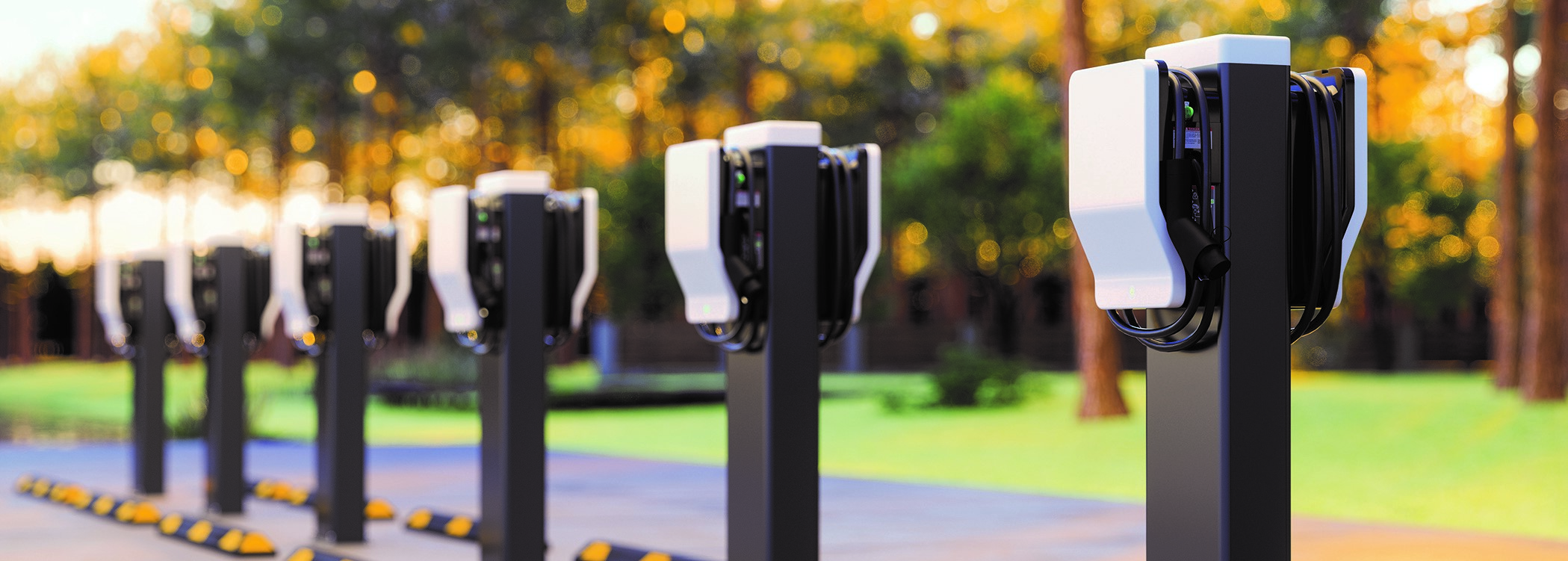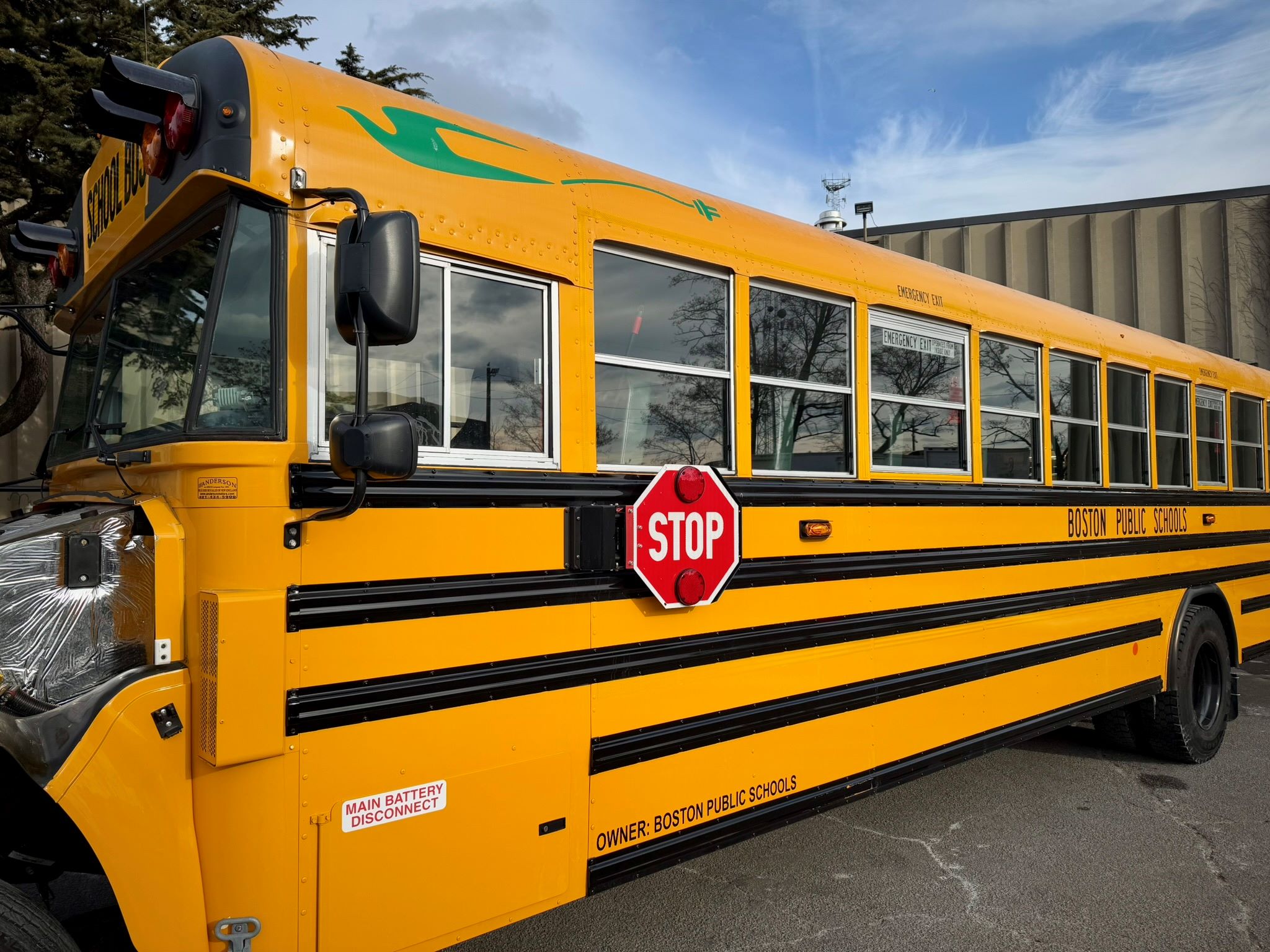Our Sustainability Report
See highlights from other sustainability areas or download the full PDF report for detailed data, graphs and more.
Read the reportInformation on this page is for customers in
{{ town-name }}

Transportation contributes the largest proportion of our region's greenhouse gas footprint. We're committed to advancing access to electric vehicle charging, investing in local electric grid infrastructure and educating customers to help New England reach significant carbon reduction goals over the next few decades.
We work closely with other New England utilities to invest in local grid upgrades that promote the adoption of EVs and support the addition of EV charging stations. We're also collaborating with local, state and regional partners to support the installation of EV charging stations throughout our service territory, including along major U.S. travel corridors.

Electrifying school buses is an important initiative in advancing the city of Boston’s Green New Deal for all residents.
Boston Public Schools currently operate over 35 electric school buses in their fleet, with a goal of converting the entire fleet to electric by 2030. Eversource played a key role in the bus electrification pilot by providing incentives for the electrical infrastructure and charging stations that power the buses.
See highlights from other sustainability areas or download the full PDF report for detailed data, graphs and more.
Read the report